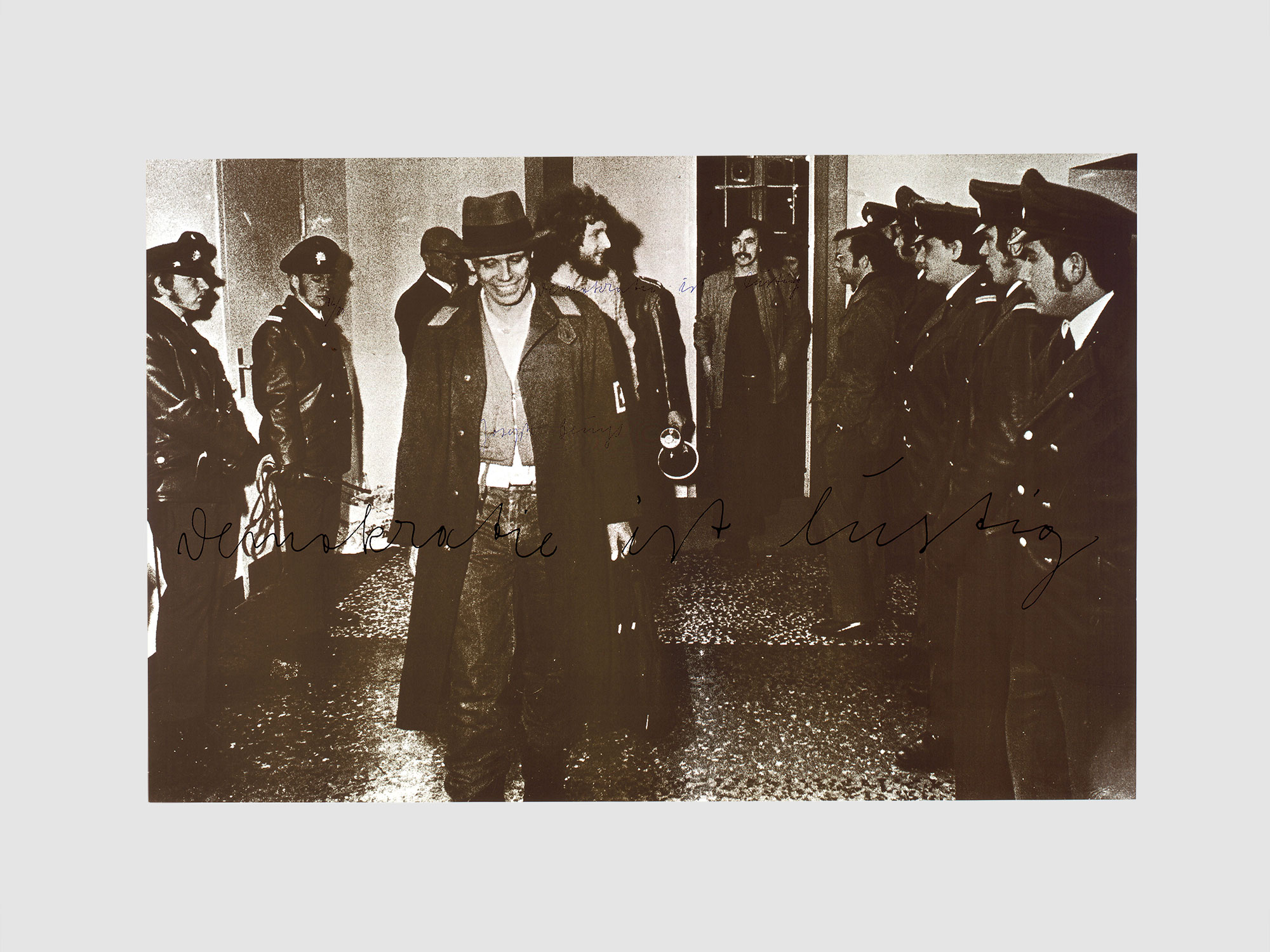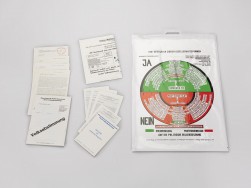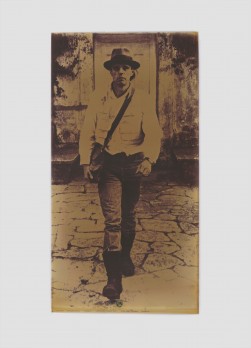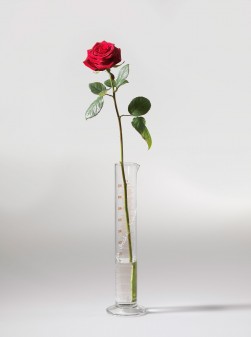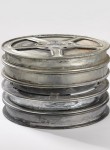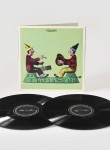Democracy is Funny
[Demokratie ist lustig]
- 1973
- Silkscreen on cardstock, with handwritten text
75 x 114.5 cm - Edition: 80 signed and numbered
- Edition: 80, signed and numbered
- Publisher: Edition Staeck, Heidelberg
- Catalogue Raisonné No.: 68
This screen print depicts the moment, on October 11th, 1972, when Beuys was expelled from the Düsseldorf State Art Academy. It derives from a photograph by Ernst Nanninga, which was enlarged, recoloured and reprinted by the publisher Klaus Staeck. Beuys had taught at the Academy since the early 1960s, and, in 1971, had begun protesting its selective admissions-policy. Declaring education to be a universal human right, he had accepted every applicant rejected by the school’s authorities. As part of this protest action, Beuys and sixteen non-admitted students occupied the offices of the Academy in a bid to force the administration to abolish intake restrictions. While successful on this first occasion, a repeat occupation of the offices the following year was met with a stern response by the school’s administration. The Academy’s director, Eduard Trier, called in the police, at which point Beuys chose to leave the building willingly.1
Nanninga’s photograph depicts the moment of Beuys’s departure. It shows the artist and his students filing out between two ranks of police officers. While the officers look on stone-faced or with scarcely concealed disdain, Beuys is smiling broadly. As if to explain his laughter he has scrawled across the centre of the photograph ‘Democracy is funny’ [Demokratie ist lustig]. But where exactly does the humour lie here? In Beuys’s ability to see the funny side of his provocative actions, which had at this point been continuing for some time? Or with the fact that Trier’s stringent reaction, revealed the Academy to be a less than democratic institution, which for this reason was not to be taken seriously? In either case this multiple amounted to a new provocation on Beuys’s part, which helped to further publicise his cause.
For a summary of these events, see Götz Adriani, Winfried Konnertz and Karin Thomas, Joseph Beuys: Life and Works (New York: Barron’s, 1979), 230–232, 249–260. ↩
© Mario Gastinger, Photographics, Munich
